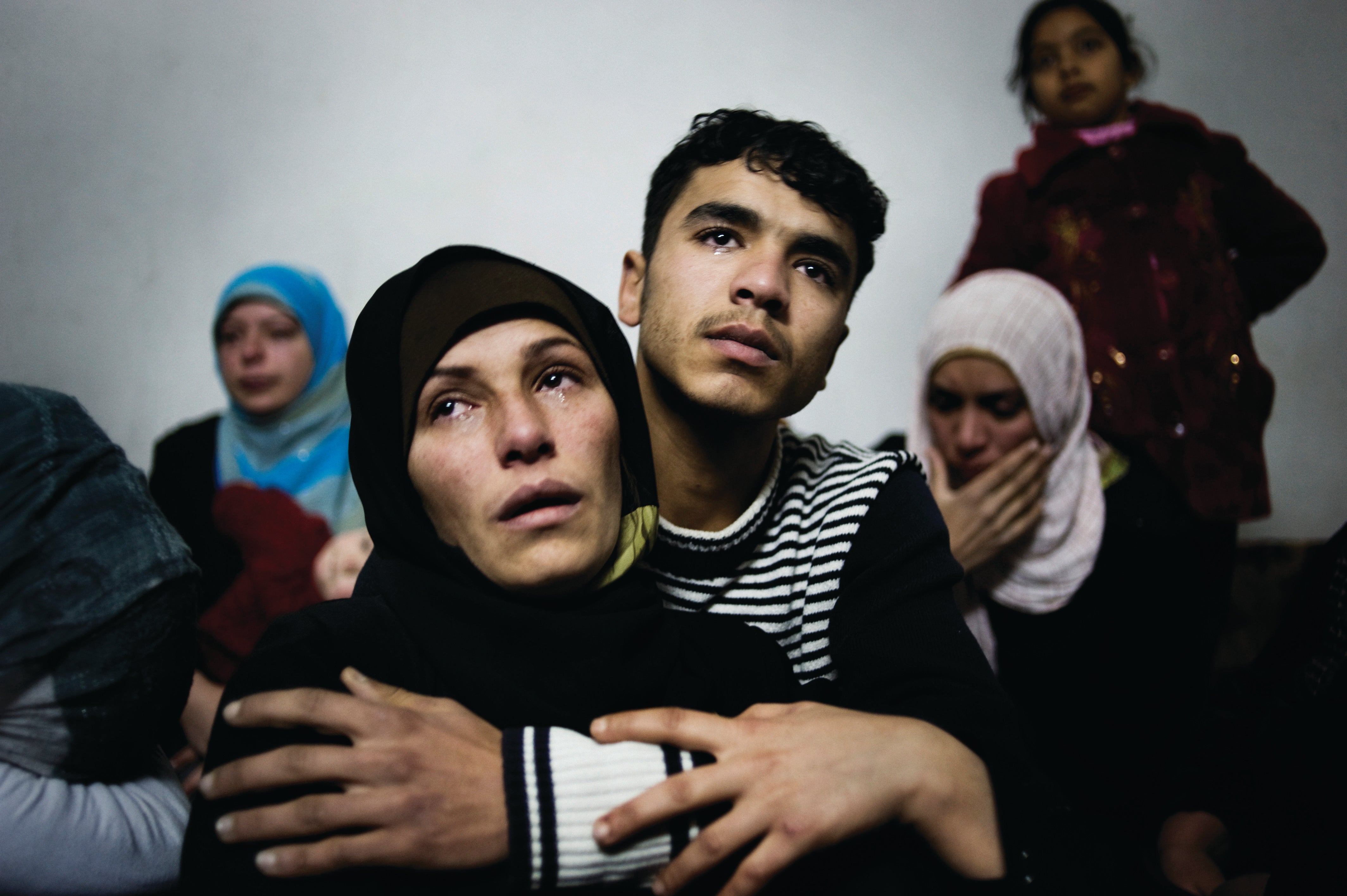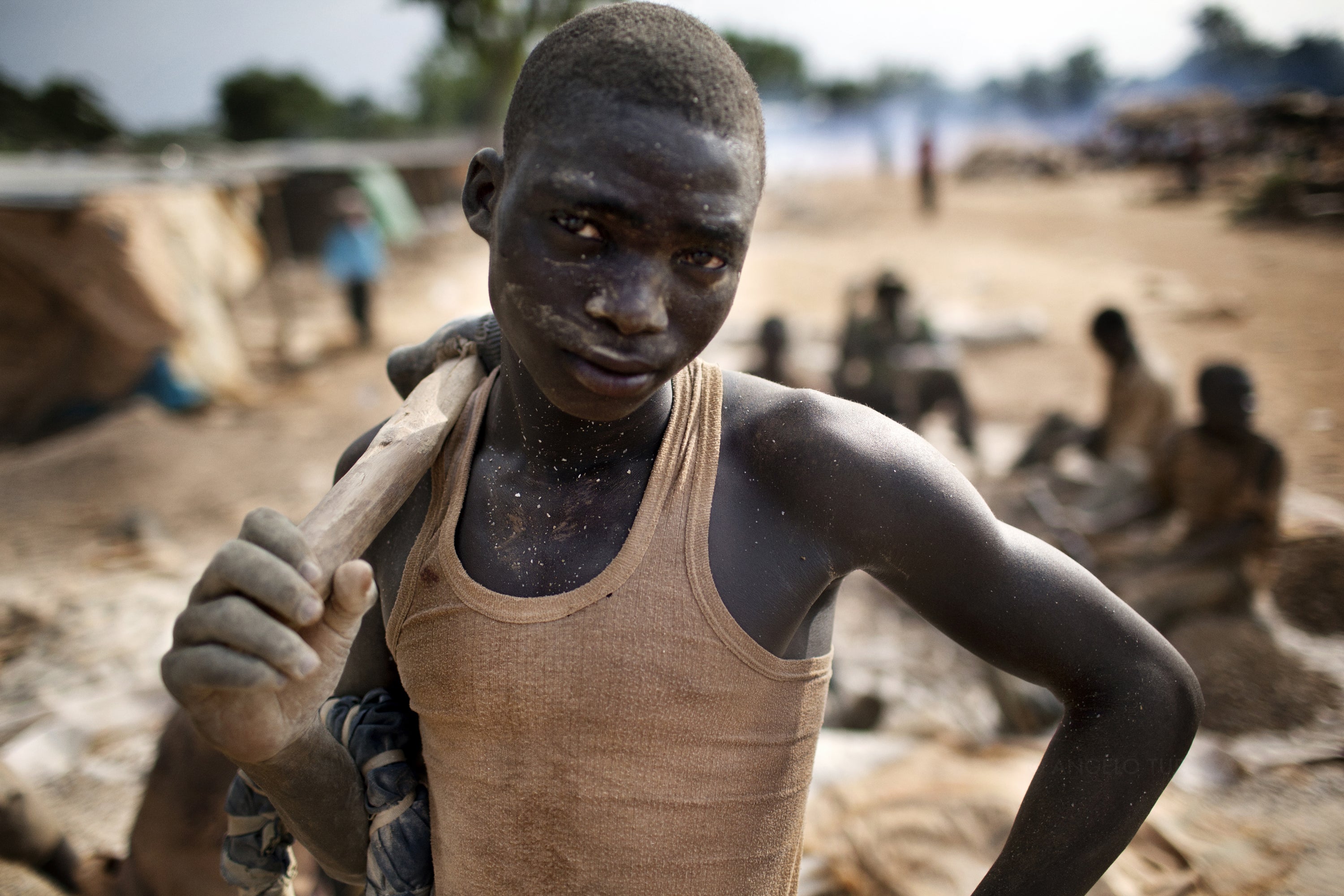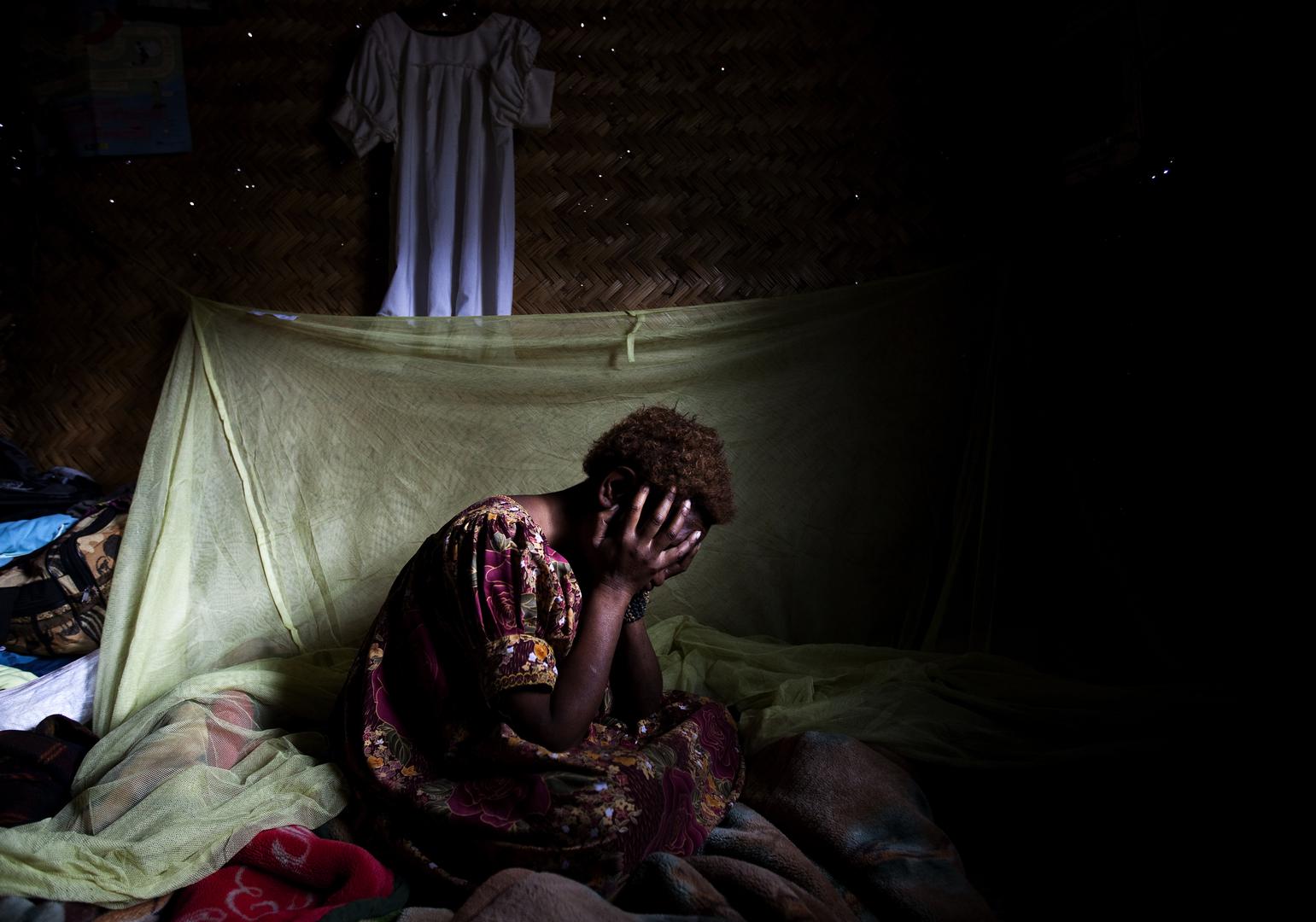President Otto Pérez Molina, a former military officer who was elected in 2011, has increasingly used the Guatemalan military in public security operations, despite the serious human rights violations it committed during the country’s civil war.
While impunity remains the norm in Guatemala, the prosecutor’s office made progress in several prominent human rights cases in 2012, including bringing charges against the former head of state, retired General Efraín Ríos Montt, for atrocities committed in the early 1980s, and against eight members of the army for allegedly killing protesters in October.
Public Security and the Criminal Justice System
Powerful criminal organizations contribute significantly to violence and intimidation, which they use to further political objectives and illicit economic interests. Mexican drug cartels, in particular the Zetas, have added to the violence, as have transnational gangs such as Mara Salvatrucha. These groups have carried out lethal attacks against rivals and those who defy their control, such as those who refuse to pay extortion money.
Guatemala’s justice system has proved largely incapable of curbing violence and containing organized crime and gang activity. According to official figures, 98 percent of crimes in Guatemala do not result in prosecutions. Deficient and corrupt prosecutorial and judicial systems, as well as the absence of an effective witness protection system, all contribute to this alarmingly low prosecution rate.
Despite these obstacles, prosecutors made significant advances in 2012 in recent cases involving torture, extrajudicial killings, and corruption—due in large part to the work of Attorney General Claudia Paz y Paz and the United Nations International Commission against Impunity in Guatemala (CICIG).In March, former director of the National Police Marlene Raquel Blanco Lapola was charged with the extrajudicial execution of three people in 2009 for allegedly orchestrating a plan to kill individuals suspected of extorting transport workers.
Yet the progress made by the public prosecutor’s office and CICIG in bringing charges against officials has been undercut by the dilatory practices of defendants’ lawyers, leading to trial postponements of up to several months or even years. Efforts to reform the criminal code and other laws to limit such practices have not advanced.
Use of Military in Public Security Operations
The Pérez Molina administration has increasingly relied on the military to carry out law enforcement duties, in particular efforts to combat organized crime. States of emergency have been declared on several occasions, allowing for the suspension of basic rights, and the military has repeatedly been used to assist police responding to public protests.
In October, soldiers intervened when protesters blocked a highway in Totonicapán. Soldiers opened fire on the protesters, killing six people and wounding more than 30 others, according to charges that the public prosecutor’s office later brought against seven members of the military, including an army colonel.
In the aftermath of the shooting, Pérez Molina said the military would no longer be used to respond to public protests, but would continue to assist the police in public security duties. He pledged to draft a legislative proposal clarifying the role of the military in public security operations. At this writing, no proposal had been submitted to Congress.
Accountability for Past Abuses
In January, Efraín Ríos Montt—a retired general who led the military regime from 1982 to 1983 that carried out hundreds of massacres of unarmed civilians—was charged with genocide and crimes against humanity, and placed under house arrest. He had been immune from prosecution during the previous 12 years while serving in Congress.
In May, Ríos Montt was charged in a separate case for his role in a 1982 massacre in the town of Dos Erres, in the Petén region, in which soldiers murdered more than 250 people, including children. In both cases, Guatemalan courts denied appeals by his lawyers for amnesty under the National Reconciliation Law. However, his lawyers continued to file numerous legal challenges that have prevented the judicial proceedings from advancing.
President Pérez Molina, commenting on Ríos Montt’s prosecution, asserted that while state actors may have carried out serious abuses, the crimes committed during the civil war do not constitute genocide. Such statements represent undue interference with the judicial process.
In March, a former member of army special forces, Pedro Pimentel, was sentenced to 6,060 years in prison for his role in the Dos Erres massacre. His conviction followed the sentencing in 2011 of four other retired officers who participated in the massacre and received similar sentences. In August, a Guatemalan court sentenced the former chief of detectives of the National Police, Pedro García Arredondo, to 70 years in prison for his involvement in the disappearance of a university student in 1981.
In June, Secretary of Peace Antonio Arenales Forno announced that the government was closing the Office of the Peace Archives, which had been created in December 2008 to systematize and analyze official documents from the internal conflict, such as secret police records. While the government said that over two million documents had been digitalized and would remain accessible, the office’s closure ended the staff’s efforts to document evidence of past abuses, which had played a key role in the prosecution of former officials.
Labor Rights and Child Labor
A high level of anti-union violence, including attacks and threats against trade unionists, endangers freedom of association and the right to organize and bargain collectively. The International Trade Union Confederation (ITUC) reported that at least 10 trade unionists were killed in 2011.
In 2010, the United Nations Children’s Fund (UNICEF) found that, despite the basic minimum age for work being 14, 21 percent of children aged 5 to 14 were involved in child labor, many of them forced. Upon concluding an August 2012 visit to Guatemala, UN High Commissioner for Human Rights Navi Pillay said children continued to be widely exploited in sexual tourism, child pornography, and organized crime—problems that the government has failed to address effectively.
Gender-Based Violence
Violence against women is a chronic problem in Guatemala and perpetrators rarely face trial. According to Guatemala’s human rights prosecutor’s office, rapes and sexual assaults of women increased by 34 percent from 2008 to 2011, while in 9 of every 10 of these cases, those responsible are not punished.
Palliative Care
Palliative care is very limited in Guatemala, even though more than 10,000 people die of cancer or HIV/AIDS each year, many in severe pain. In 2012, Guatemala took the positive step of authorizing the use of immediate-release oral morphine, although the drug is not widely available, and set up a national commission to develop public palliative care policies. Nevertheless, Guatemala has failed to ensure health care workers are adequately trained in modern pain treatment methods or reform its regulatory policies, which continue to discourage doctors from prescribing pain medication and limit patients from accessing pain treatment.
Human Rights Defenders
Attacks and threats against human rights defenders are common, significantly hampering human rights work throughout the country. Those responsible are rarely prosecuted.
Key International Actors
The CICIG, established in 2007, plays a key role in assisting the Guatemala’s justice system in prosecuting violent crime. The commission’s unique mandate allows it to work with the Attorney General’s Office, the police, and other government agencies to investigate, prosecute, and dismantle criminal organizations operating in Guatemala. The CICIG can participate in criminal proceedings as a complementary prosecutor, provide technical assistance, and promote legislative reforms. As of September 2012, it had initiated 289 investigations, which had resulted in 70 people being sentenced. President Pérez Molina has expressed support for extending CICIG’s mandate, which is set to expire in 2013, by two additional years.
Three former Guatemalan officials allegedly involved in a plan to execute prisoners and escapees involved in a prison break are currently being investigated in foreign countries. Erwin Sperisen, the head of Guatemala’s police from 2004 to 2007, was arrested in August in Switzerland, where he has dual citizenship, while former Interior Minister Carlos Vielman, and Sperisen’s former deputy, Javier Figueroa, have been charged in Spain and Austria, respectively. All three investigations remain ongoing.
In September, Jorge Vinicio Orantes Sosa, the former Guatemalan soldier who allegedly participated in the Dos Erres massacre, was detained in Canada and extradited to the United States, where he has been charged with making false claims in his application to become a US citizen. If convicted, he could be sent to Guatemala after serving his sentence.
In January, Guatemala ratified the Rome Statute, making the country party to the International Criminal Court (ICC).
The Pérez Molina government has asked the US to lift suspensions established in 1990 on US military aid because of the Guatemalan military’s history of committing serious abuses with impunity. In August, the US deployed 171 marines to Guatemala to collaborate with security forces as part of a joint counternarcotics mission.




